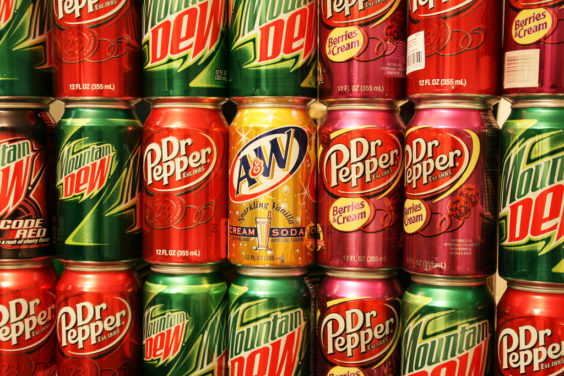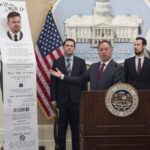
The good news is, soft drink companies say they may be offering a lot more coupons in the near future. The only bad news is, if you’re a full-calorie soda fan, the coupons will be for low-calorie options. But it’s a lot better than the alternative – an outright ban on soda coupons altogether.
Word about the possibility of more diet soda coupons came during Tuesday’s annual meeting of the Clinton Global Initiative. On stage in New York, Former President Bill Clinton, together with representatives from Coke, Pepsi, Dr Pepper, the American Beverage Association and the Alliance for a Healthier Generation, announced a new effort to encourage Americans to drink healthier.
The announced goal is to reduce the calories each of us consumes in beverage form, by 20% over the next decade. The soda makers plan to achieve that goal, by promoting their lower-calorie choices, including diet drinks and water. They’ll do so, by launching “consumer education and outreach efforts to increase consumer awareness of, and interest in, the wide array of no- and lower-calorie beverages and smaller portion sizes available.” Those efforts will include posting calorie counts on vending machines, and more prominently featuring lower-calorie drinks in supermarket displays.
And if that “education” isn’t enough, they plan to toss in “coupons and other incentives promoting no/lower-calorie options” as well.
Now they’re talking!
“This is a tremendous undertaking by the industry, one that should be applauded,” the Alliance for a Healthier Generation said in a statement. So the beverage industry applauded itself: “Our industry has a longstanding commitment to being part of the solution to reducing obesity in America,” the American Beverage Association said. As for former President Clinton, he called the effort a “profoundly important commitment to combat the obesity epidemic.”
Others are somewhat less impressed.
“While they’re making this pledge, they are totally dug in, fighting soda tax initiatives in places like Berkeley and San Francisco that have exactly the same goal,” Marion Nestle, a professor of nutrition and public health at New York University, told the New York Times. “What better way to get a public relations boost than to promise to do what’s happening anyway?” added Kelly Brownell, an obesity expert at Duke University’s Sanford School of Public Policy.
Indeed, several communities in California are among the latest to propose a soda tax, to help discourage consumption of the sugary drinks. And a recent public health researcher went even further, proposing a ban on soda coupons, so the soft drink companies can’t help offset higher taxes, with lower prices.
Promising to offer coupons specifically for lower-calorie drinks, then, could help ease the call to ban soda coupons outright. And if such a ban seems far-fetched, well, maybe it is – but it’s another example of how the threat of drastic government action can prod companies into doing what they otherwise might be forced by law to do.
So one may question the motives of those behind Tuesday’s announcement. But if you’re a soda drinker and are forced to pay retail prices these days of as much as two bucks for a 2-liter or well over $5 for a 12-pack of canned soda, motives be darned – just bring on the coupons!










